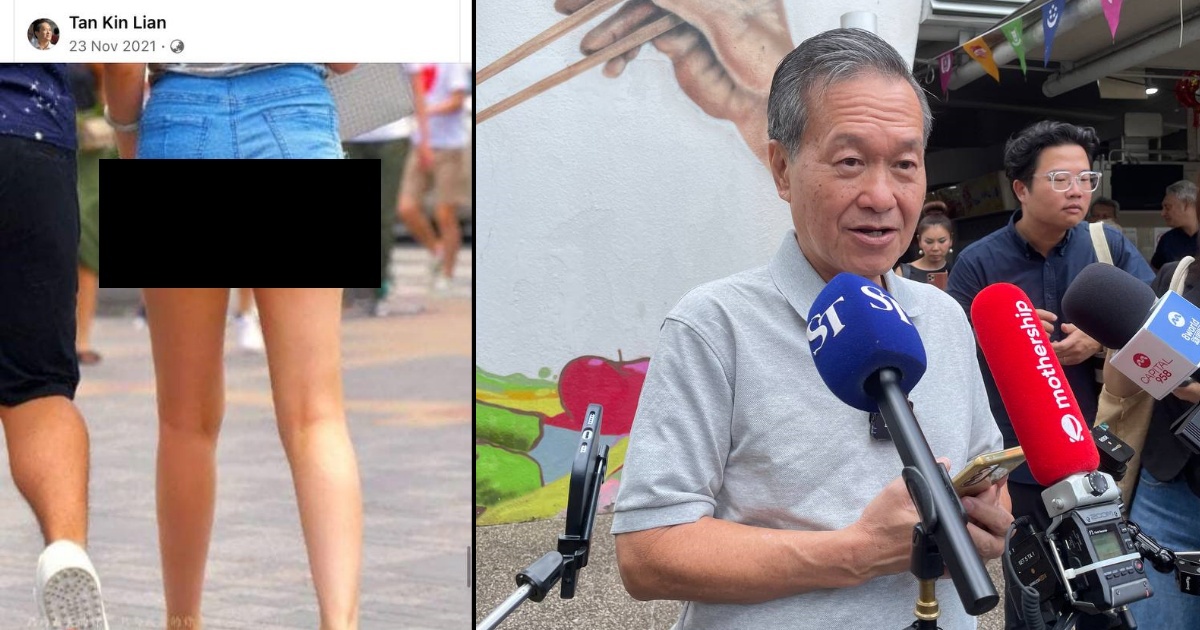Presidential candidate Tan Kin Lian's past social media posts have come under the spotlight.
The posts — 23 in two years — are numerous (as painstakingly counted by The Straits Times).
Today we know such unsolicited comments on a woman's appearance is objectifying; read in that context, Tan's posts seemingly paint a picture of a man who has frivolous regard for females.
Many have debated whether Tan deliberately objectifies women with his posts about "pretty girls", especially his decisions to post publicly about them.
Some have defended Tan's actions, saying that it's only "human nature to look at pretty females".
Perhaps some would say that he is a product of his time, especially since he's described those posts as being done in the spirit of "lighthearted" entertainment.
Concerns about his response
However, there is another aspect that is arguably more important, and that is Tan's response to getting called out.
When assessing him as a potential President, it's natural that the electorate will be looking closely at his response to this controversial issue.
When faced with criticism—including a not-so-subtle condemnation by The Association of Women for Action and Research (AWARE)—Tan insisted that he was part of a malicious "smear campaign" and the victim of "unfair and dishonest" reporting by the media.
As of Aug. 21, Tan has devoted no less than six Facebook posts to addressing the issue and also spoke about it during a livestream on Aug. 22 at 5:40am.
@sgprimememesters Tan Kin Lian respond to comments about his Facebook posts on pretty girls. #presidentialelection #pe2023 #Singapore ♬ original sound - sgpmo
And when the controversy continued unabated after he received his nomination, Tan offered an apology to "some other ladies" who were uncomfortable with his posts.
Tan's reaction raised eyebrows.
His decision to double down indicates a reluctance to adapt to changing norms or, at the very least, acknowledge the values that a younger, more empathetic generation of Singaporeans embrace.
It also raises questions about his understanding of contemporary social dynamics and his ability to connect with a generation that places a high value on respect, inclusivity, and responsible online behaviour.
In the past, many might not have batted an eyelid at revealing photos of strangers taken without their consent (accompanied with objectifying comments).
Yet, for today's young Singaporeans, who care a lot more about issues relating to respect and consent, this is a no-go zone—especially if you're vying to be Singapore's figurehead
Young Singaporeans today are not afraid to demand representatives whose values and worldview align with theirs—representatives who understand issues relating to gender equality and respect, who have self-awareness and aspire to be better versions of themselves, who have a keen understanding of how social media works as their public-facing persona to the world.
A socio-political commenter pointed out that Tan could have chosen a different response when faced with public backlash.
He could have apologised sincerely, admit that he had "carried it too far", and request a chance to show Singaporeans that he is "so much more than what you see and read about".
Instead, he chose to paint himself as a victim—before deleting his allegations from his website —and evade questions from the media.
Now, this wouldn't really matter as much if Tan wasn't running for the presidency. He would just be yet another "boomer" online.
But ever since he's thrown his hat into the ring, Tan has set himself at the expectations of the electorate.
It remains to be seen whether he can turn this thing around and convince young voters that he can best represent them as their president.
Top image from
If you like what you read, follow us on Facebook, Instagram, Twitter and Telegram to get the latest updates.



